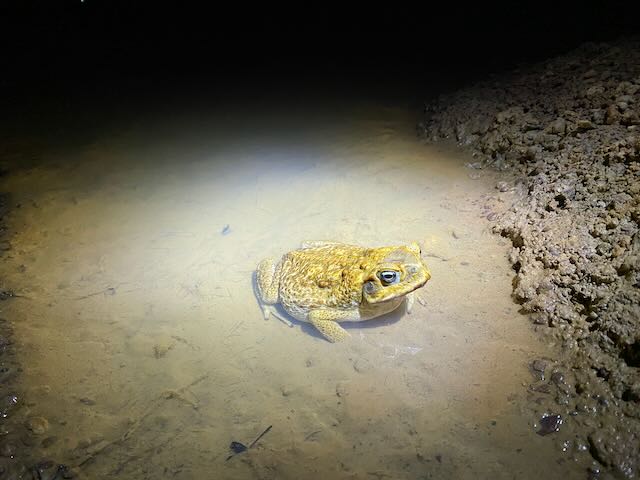Operation Toad Surveillance: which method of cane toad detection is most effective and efficient?
Overview
Cane toads (Rhinella marina) are a major invasive pest in northern Australia. Native to Central and South America, they were introduced to Australia in 1953 to control pest beetles in the Queensland sugar cane industry, but quickly spread and and now occupy more than 1.6 million square kilometres of Australia. Cane toads have a major impact on Australia’s native species (including insects, frogs, reptiles, fish, and mammals). Native species are killed when they eat the toxic cane toads, and toads compete with native species for food. As such, cane toads have resulted in the deaths of hundreds of thousands of native animals and have irrevocably changed the ecology of the landscapes that they have invaded.
Early detection of an invasive species when it arrives in a new location is key to ensuring an effective biosecurity response. How might we best run surveillance operations to detect the arrival of cane toads in an area? This project will compare methods of detecting cane toads to determine the most efficient, reliable method, and will contribute to the development of guidelines on toad detection.

Aims
This project will compare different methods for detecting the presence of cane toads when they arrive in a new area. It will involve two key components:
- Fieldwork to trial detection methods
- Desktop analytical work to develop guidelines on toad detection.
Significance
The guidelines on toad detection that will be developed through this project will be of value to a range of stakeholders from government organisations, to NGOs, mining companies, and Indigenous land managers.
Candidate growth and outputs
The candidate will gain field experience in tropical Australia. They will develop networks with Indigenous and government partners. The candidate will also gain valuable experience with sampling design, data analysis, and reporting
How to apply
Candidates must have:
- A strong track record in undergraduate studies;
- A background or keen interest in ecology or conservation.
Send enquiries to Ben Phillips.